- Top
- About
- Program
- Speakers
- Event Report
| Date | February 16, 2023 |
|---|---|
| Venue | Online (Zoom Meeting) |
| Registration | Free Registration from here 【finished】 |
| Abstract book | Abstract.pdf(2.5MB) |
| Recording | https://youtu.be/e5VsLURW7hc (External Link) |
| Organizer | National Institute for Environmental Studies (NIES - Japan) |
| Co-organizers | Institute for Global Environmental Strategies (IGES - Japan) |
Contact
National Institute for Environmental Studies (NIES)
16-2 Onogawa, Tsukuba, Ibaraki 305-8506 JAPAN
E-mail: nies_forum@nies.go.jp
Title
How has Asia-Pacific Integrated Model(AIM) committed to decarbonization?
Background and Objectives
The National Institute for Environmental Studies (NIES) has been developing and applying the Asia-Pacific Integrated Model (AIM), an integrated assessment model, to various countries in cooperation with research institutes in Japan and abroad, especially in Asia. As a result, the simulation results using AIM were used in Indonesia and Thailand to develop their long-term strategies. In addition, we have contributed to the climate policies of several Asian countries, such as providing simulation results for Vietnam to achieve the net-zero GHG emissions by 2050. In the global warming countermeasures plan approved by the Cabinet in 2021, the "Support of development of Long-term strategy, revision of NDCs and capacity development of institutional capacity and implementation capabilities in private companies based on the Asia-Pacific Integrated Model (AIM) will help to increase the ambition of partner countries and strengthen their efforts toward decarbonization.” This means that AIM's contribution to evidence-based policy making is expected in the Asian countries. On the other hand, in order for scenario analyses to contribute to the realization of a decarbonized society in Asia, the models used in the AIM need to evolve to include more detailed models in addition to the conventional enduse model and economic model, so that they can deal with social changes and specific countermeasures.
In this 8th NIES International Forum, we will introduce the researches on AIM initiatives in Asian countries, share opinions from policy makers and other stakeholders, discuss how the findings from scenario analyses can be implemented in the real society to realize a decarbonized society, and further discuss the challenges and expectations for the future of scenario analyses and the AIM. By sharing the issues and expectations for the AIM in the future, we will clarify the direction in which the AIM can be an infrastructure for a decarbonized society.
Session Overview
1. Envisioning a Decarbonized Society
[AIM as a tool to assess transition options toward a decarbonized society]
In response to the Paris Agreement, Asian countries have also begun to analyze the realization of 2°C and 1.5°C targets. In this session, the researchers in China and Indonesia, who have developed integrated assessment models and conducted various analyses on decarbonization of each country, will make presentations on their efforts to quantify future scenarios using the AIM in each country. Then, from the viewpoints of company and international cooperation, we will receive opinions on the current status and prospects of corporate initiatives and technology transfer needed to change to a decarbonized society, and discuss how AIM can and should be utilized to contribute to such initiatives in a panel discussion.
2. AIM as a Policy Support Tool
[Expectations from climate policy making process]
AIM is also expected to play a role as a policy tool by providing quantitative information to support the development of climate mitigation policies including long-term strategies, and to assist local areas in their decarbonization policies. In this session, the researchers in Thailand and Malaysia, who have been providing the AIM results to national and local government, will make their presentations how the simulation results from the AIM have been used in the climate mitigation policies in these countries. Then, from the viewpoint of climate policy making process, expectations for the integrated assessment model will be explained. At the panel discussion, we will discuss how the AIM can contribute to the realization of decarbonization policies and how the model can be further improved.
February 16, 2023
MC: Marissa Malahayati (NIES)
Opening 13:30-13:40 JST
Welcome Addresses
Masahide Kimoto
President, National Institute for Environmental Studies, Japan
Kazuhiko Takeuchi
President, Institute for Global Environmental Strategies, Japan
Keynote Speech 13:40-14:00 JST
![]() AIM Initiatives and Experience in Japan
AIM Initiatives and Experience in Japan
Toshihiko Masui
Director, Social Systems Division, National Institute for Environmental Studies, Japan
![]() Japan’s Support Towards Asia’s Net-Zero Emissions
Japan’s Support Towards Asia’s Net-Zero Emissions
Junko Nishikawa
Director for Sustainable Infrastructure, Ministry of the Environment, Japan
Session 1: Toward the Realization of a Decarbonized Society 14:00-15:30 JST
![]() Session Outline
Session Outline
Chairperson:Tatsuya Hanaoka
Head, Global Sustainability Integrated Assessment Section, Social Systems Division,
National Institute for Environmental Studies, Japan
Case Study 1: China
![]() Modeling for Energy and Economy Transition using Multiple Objectives for China: The IPAC Analysis
Modeling for Energy and Economy Transition using Multiple Objectives for China: The IPAC Analysis
Jiang Kejun
Senior Researcher, Energy Research Institute (ERI), China
Case Study 2: Indonesia
![]() Development of Decarbonization Pathway in Indonesia Energy Sector
Development of Decarbonization Pathway in Indonesia Energy Sector
Ucok W.R. Siagian
Senior Researcher, Center for Research on Energy Policy, Institut Teknologi Bandung, Indonesia
Panel Discussion
Facilitator: Tatsuya Hanaoka
Short Presentations
![]() Nuttavut Intarode (Director, Sustainable Development, The Siam Cement PLC (SCG), Thailand)
Nuttavut Intarode (Director, Sustainable Development, The Siam Cement PLC (SCG), Thailand)
![]() Makoto Kato (Member, Board of Directors, Overseas Environmental Cooperation Center, Japan)
Makoto Kato (Member, Board of Directors, Overseas Environmental Cooperation Center, Japan)
Discussion
Jiang Kejun
Ucok W.R. Siagian
Nuttavut Intarode
Makoto Kato
Session 2: AIM as a Policy Support Tool 15:45-17:20 JST
![]() Session Outline
Session Outline
Chairperson: Yosuke Arino
Researcher & Project Leader, Mitigation and Adaptation Integration, Strategic Management Office,
Institute for Global Environmental Strategies, Japan
Case Study 3: Malaysia
![]() Pathway to Decarbonized Malaysian cities using Asia Pacific Integrated (AIM) modelling
Pathway to Decarbonized Malaysian cities using Asia Pacific Integrated (AIM) modelling
Chin Siong HO
Department of Urban & Regional Planning, Faculty of Built Environment and Surveying,
University of Technology Malaysia (UTM), Malaysia
Case Study 4 : Thailand
![]() Thailand Net Zero Emissions 2050
Thailand Net Zero Emissions 2050
Bundit Limmeechokchai
Associate Professor, Thammasat University Research Unit in Sustainable Energy and Built Environment,
Sirindhorn International Institute of Technology (SIIT), Thammasat University, Thailand
Panel Discussion
Facilitator: Yosuke Arino
Short Presentations
Vong Sok (Head of Environment Division, Assistant Director of Sustainable Development Director,
ASEAN Secretariat)
![]() BounEua Khamphilavanh (Deputy Director, GHG Mitigation Division, Department of Climate Change,
BounEua Khamphilavanh (Deputy Director, GHG Mitigation Division, Department of Climate Change,
Ministry of Natural Resources and Environment, Laos)
![]() Tomoko Ishikawa (Joint Director, Knowledge and Communications, Strategic Management Office,
Tomoko Ishikawa (Joint Director, Knowledge and Communications, Strategic Management Office,
Institute for Global Environmental Strategies, Japan)
Discussion
Chin Siong HO
Bundit Limmeechokchai
Vong Sok
BounEua Khamphilavanh
Tomoko Ishikawa
Discussion Summary / Closing 17:20-17:40 JST
Summary
![]() Global Perspective and Sustainability
Global Perspective and Sustainability
Tatsuya Hanaoka
![]() Policy Support Perspective
Policy Support Perspective
Yosuke Arino
Closing Address
Yuichi Moriguchi
Vice President, National Institute for Environmental Studies, Japan
Welcome Addresses
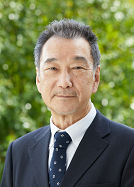
Dr. Masahide Kimoto
President, National Institute for Environmental Studies, Japan
Dr. Masahide Kimoto received Ph.D. in atmospheric sciences from University of California, Los Angeles in 1989. His main fields of study are climate dynamics, predictability, and human impacts on the climate system. He is president of National Institute for Environmental Studies and professor emeritus of the University of Tokyo. He was a member of Joint Scientific Committee of World Climate Research Programme (WCRP), a review editor of IPCC AR6 (Working Group I) and a lead author of IPCC AR5.
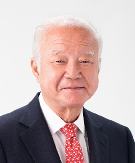
Prof. Kazuhiko Takeuchi
President, Institute for Global Environmental Strategies (IGES) / Project Professor, Institute for Future Initiatives (IFI), The University of Tokyo
Kazuhiko Takeuchi is President of the Institute for Global Environmental Strategies (IGES) and a Project Professor at the Institute for Future Initiatives (IFI), The University of Tokyo. He served as Senior Vice-Rector of the United Nations University (UNU) and currently holds a position as Visiting Professor at UNU Institute for the Advanced Study of Sustainability (UNU-IAS). He has served, inter alia, as Acting Chair of the Central Environment Council; and Chair of the Nature Conservation Committee of the Central Environment Council, Government of Japan, Editor-in-Chief of the journal Sustainability Science (Springer Nature), and Distinguished Chair, Wangari Maathai Institute for Peace and Environmental Studies, University of Nairobi. He specialises in landscape ecology, landscape planning, and sustainability science. He engages in research and outreach activities on creating eco-friendly environments for a harmonious coexistence of people and nature, especially focusing on Asia and Africa.
Keynote Speeches
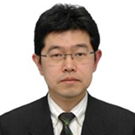
Dr. Toshihiko Masui
Director, Social Systems Division, National Institute for Environmental Studies, Japan
Toshihiko Masui received doctoral degree from Osaka University in 1997. He has worked at National Institute for Environmental Studies (NIES) since 1998, and now is director of Social Systems Division of NIES. His major is modeling and simulation on environmental policies, especially assessment of climate mitigation policies. He is in charge of the AIM (Asia-Pacific Integrated Model) project in NIES. He is a sub-committee member of Central Council of Environment, and a lead author of the 6th Assessment Report of IPCC Working Group 3. He has also worked in Tokyo Institute of Technology since 2000. He has lectures on the environmental modeling and policy for both undergraduate and graduate students.
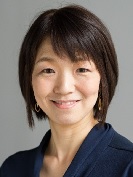
Ms. Junko Nishikawa
Director for Sustainable Infrastructure, Ministry of the Environment, Japan
As Director for Sustainable Infrastructure of the Ministry of the Environment of Japan, Junko Nishikawa works on promoting international cooperation for transition to decarbonization and sustainable infrastructure. She brings 20 years of experience in policy development and project management in Japan and abroad. In the ministry, she played active roles in international policymaking process under the Basel Convention and the Montreal Protocol and managed regional and bilateral projects especially in Asia and the Pacific region. Her wide experience in development assistance includes works at the World Bank, United Nations University, and JICA environmental policy advisor for Myanmar. Junko holds a Master of International Affairs in Sustainable Development and a Master of Science in Ecology.
Session1
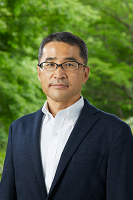
Dr. Tatsuya Hanaoka
Head, Global Sustainability Integrated Assessment Section, Social Systems Division,
National Institute for Environmental Studies, Japan
Dr. Tatsuya Hanaoka is the head of the global sustainability integrated assessment section in the social system division at NIES. He is one of members of the AIM (Asia-Pacific Integrated Model) team and has been in charge of developing the bottom-up type model, named the AIM/Enduse model, from the global to national level, especially focusing on Asia regions. His key research interests are 1) multi-regional and multi-sectoral bottom-up modeling, 2) emissions scenarios on GHGs (Greenhouse Gases), SLCFs (Short-Lived Climate Forces), air pollutants, ODSs (Ozone Depleting Substances) and heavy metal, etc., 3) co-benefits and trade-off analyses on emissions mitigations and those impacts due to different combinations of mitigation measures, and 4) impacts of behavior changes on service demand projections and sustainable development.
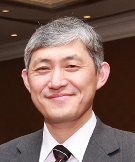
Dr. Jiang Kejun
Senior Researcher, Energy Research Institute, China
Kejun Jiang’s research focus is energy, climate change mitigation and air pollution prevention policy assessment by using IPAC modeling, to support national five year plans, and long-term planning. He began his research in ERI from 1990, and led the development of Integrated Policy Assessment Model for China(IPAC). IPAC modeling team is now a leading research team on China’s 2050 energy transition studies by providing benchmark research results. Major research focus includes energy and emission scenarios, energy policy, energy system,. energy market analysis, and climate change, local environment policies and international negotiation. He also was authors of IPCC for Special Report on Emission Scenario from 1997, and Working Group III Third Assessment Report, leader author for IPCC WGIII AR4 Chapter 3, and leader author for GEO-4 Chapter 2, CLA in WGIII of IPCC AR5, LA for IPCC AR5 Synthesis Report, CLA of IPCC Special Report on 1.5℃ Warning, Vice Co-Chair of GEO6. From 2010, he is author for UNEP Emission Gaps. Now he is lead author of IPCC AR6 WGIII. He also joined international research collaboration projects such as EMF, FP6, FP7 and H2020 research projects. He is member of Scientific Panel of UNEP CCAC, and Scientific Committee of IAMC. He got his Ph.D in Social Engineering Department of Tokyo Institute of Technology.

Dr.Ucok WR SIAGIAN
Senior Researcher, Center for Research on Energy Policy Institut Teknologi Bandung, Indonesia
Dr. Siagian has a chemical and petroleum engineering background. In the past 15 years he has been working in energy-environment policy research especially in the area of modeling. He has been actively involved in stakeholder engagement to promote energy decarbonization strategy in national as well as regional level.

Mr. Nuttavut Intarode
Sustainable Development Director, The Siam Cement PLC (SCG), Thailand
Nuttavut Intarode is the director of sustainability development of Siam Cement Group (SCG). Since taking a role in sustainability development, he has been driving a net zero transition and orchestrating various sustainability actions through SCG’s ESG strategic approaches including set net zero, go green, reduce inequality, and enhance collaboration with trust through transparency in all operations both domestically and regionally. Nuttavut Intarode has joined with SCG since graduate in bachelor degree - Industrial Chemistry, from the faculty of science, Chiang Mai University in 1995 as a quality assurance engineer in cement business. In 2008, he received SCG’s scholarship to pursue his Master Degree in Engineering and Technology Management from Portland State University, Portland, Oregon, USA in 2008. During his career in SCG he held several managerial roles in quality assurance manager in refractory, cement, and construction businesses. Currently he is also a company representative being a workgroup member of Thought Leadership, Global Cement and Concrete Association (GCCA) and an associate member of Thailand Business Council Sustainable Development (TBCSD).
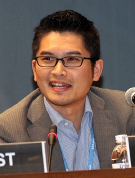
Mr. Makoto Kato
Member, Board of Directors, Overseas Environmental Cooperation Center, Japan
Makoto Kato has been engaged in development cooperation on climate change around 20 years, with a strong focus on the Asia-Pacific region. His work includes supporting climate change mitigation and adaptation, market mechanism, transparency, finance, technology, and capacity-building in developing countries to respond to the Paris Agreement and the SDGs. He has served as a leading expert to facilitate the development, implementation, and review of the Bangkok Master Plan on Climate Change, as well as supporting the Government of Viet Nam in elaborating and implementing Nationally Determined Contribution (NDC) under JICA technical cooperation projects. He has been involved in the UN climate change negotiations since 2004 (COP10), and served as the lead negotiator on the issue of capacity-building and action for climate empowerment to draft the Paris Agreement (adopted as Article 11 and 12) for the Delegation of Japan. He also enjoys working with his students as a visiting lecturer at the Graduate School of Media and Governance of Keio University at Shonan Fujisawa Campus.
Session2

Dr. Yosuke Arino
Researcher & Project Leader (Mitigation and Adaptation Integration), Strategic Management Office, Institute for Global Environmental Strategies (IGES), Hayama, Japan
Associate Professor (Specially Invited), Faculty of the Environment and Information Studies, Keio University, Fujisawa, Japan
He is the programme manager for the ASEAN Climate Change Strategic Action Plan 2023-2030 (ACCSAP) and the ASEAN State of Climate Change Report published in October 2021, and the principle investigator for the “Research on Developing a Roadmap and Supporting Implementation of Transition Strategies for Mitigation and Adaptation towards Realizing Climate-neutral and Resilient Societies in Developing Countries and Sub-regions in Asia (1CN-2206)” (2022-2025). He has experiences of Integrated Assessment Model (IAM) analysis on mitigation, adaptation, and geoengineering at the Research Institute of Innovative Technology for the Earth (RITE) (2014-2019) and analyses of solar PV diffusions and capacity estimates for adaptation to climate-related hydrological hazards in Japan at the IGES. He has work experiences at the University of Tokyo's Centre for Advanced Science and Technology and Keio University Global Security Research Centre (G-SEC). PhD in Economics from Keio University.
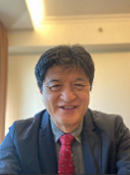
Prof. Dr. Chin Siong HO
University of Technology Malaysia , Malaysia
Prof. Dr. Ho Chin Siong received BSc Urban Regional Planning UTM (1983), MSc Construction Management UK (1987), Doctor of Engineering, Japan (1994) and attended the ASEAN Senior Management Development Program at Harvard Business School (2013). Currently, Professor at, UTM and also Professorial chair at USM, Penang, Director of UTM-Low Carbon Asia Centre, Head of RCE Iskandar. He is also Team Leader of Climate Action Plans for 8 Malaysian pilot cities by Global Covenant of Mayors (GCOM Brussels), Kuala Lumpur Carbon Neutral Growth Centre Action Plan 2050, Pacific North west National Laboratory (PNNL) United State Government- Department of Energy collaborative research on Smart and Carbon Neutral Kuala Lumpur City and Low Carbon System study betweenTokyo Metropolitan Government-Saitama City and Kuala Lumpur City Hall. He is also actively working on urban sustainability and environmental modelling with major Malaysian cities such Kuala Lumpur, Putrajaya, Petaling Jaya, Penang, Malacca and Iskandar Malaysia.
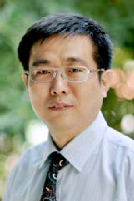
Dr. Bundit Limmeechokchai
Thammasat University Research Unit Sustainable Energy & Built Environment
Sirindhorn International Institute of Technology, Thammasat University, THAILAND
Dr Bundit Limmeechokchai holds doctoral degree in energy economics and planning from Asian Institute of Technology, Thailand. His research expertise includes energy technologies, energy efficiency, energy economics, planning and policy, renewable energy, integrated resource planning, low-carbon technologies & management, and climate change mitigation and co-benefits. Currently he is the Head of Thammasat University Research Unit in Sustainable Energy and Built Environment.
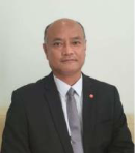
Dr. Vong Sok
Head of Environment Division, Assistant Director of Sustainable Development Director, ASEAN Secretariat
Dr. Vong Sok is a passionate and dedicated Environmental Professional, with over 20 years’ global environmental compliance and governance experience, including in-depth knowledge of strategic environmental planning, environmental diplomacy, and operations control of environmental management systems. He holds a bachelor's degree in forestry from Cambodia and a master's degree in environmental science and management from Belgium. He further completed a PhD in Impact Assessment and Climate Change at the University of Western Australia in 2012. He works extensively on environmental management in Southeast Asia, in close collaboration with government agencies, international organizations, development partners, CSOs and communities. This has provided him with specific resources to direct and coordinate the strategic level and make significant impacts and contributions to this region.

Mr. BounEua Khamphilavanh
Deputy Director, GHG Mitigation Division, Department of Climate Change, Ministry of Natural Resources and Environment, Laos
I am now a third year PhD candidate at Tokyo Institute of Technology, Japan. My research focuses on developing decarbonization scenario for road transportation by introducing EV technology, and sustainable solid waste management in Laos through the assumption of the extension of waste recycle. Meantime, I am also collaborating with IGES team to develop low carbon scenario for Luang Prbang city in Laos. At my office in Laos, I involved in updated NDC process, revised climate change strategy. I also contributed to city low emission development strategy that collaborated with UN Habitat. Long-term low emission strategy to support UND implementation is being prepared that I will be engaged after return home country.
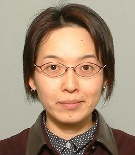
Ms. Tomoko Ishikawa
Joint Director, Knowledge and Communications, Strategic Management Office, Institute for Global Environmental Strategies (IGES), Japan
ISHIKAWA Tomoko is Joint Director, Knowledge and Communications, Strategic Management Office (SMO-KC), IGES, and Secretary-General of the Low Carbon Asia Research Network (LoCARNet). At SMO-KC, she has worked supporting a number of international and regional networks, as well as bilateral cooperation between IGES and other organisations. She currently works for not only LoCARNet, but also the Strategic Research Network for Leveraging Climate Neutral Sustainable Societies (LCS-RNet), which IGES has served as the Secretariat. Recently, she also works for the Regional Zero-Carbon Working Group, Japanese Universities’ Coalition, as one of the staff members of the Secretariat. In addition, she is in charge of planning and coordination for various international conferences, fora and meetings conducted by IGES, and impact generation to disseminate the results of IGES research and activities to the society.
Closing Address
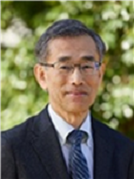
Dr. Yuichi MORIGUCHI
Vice President, National Institute for Environmental Studies, Japan
He joined National Institute for Environmental Studies (NIES) in 1982, engaged in wide range of environmental research at NIES until 2011. After appointed to the Director of the Research Center for Material Cycles and Waste Management of NIES for 2005-2011, he moved to the University of Tokyo as of April 2011. He is vice president of NIES since April 2019, retired from the University of Tokyo as of March 2021 after the cross-appointment for two years. In his early career, he had also worked for the Environment Agency of Japan and for the OECD Environment Directorate in Paris. He contributed to the UNEP International Resource Panel for 2007-2016 as one of the inaugural members. He was awarded the 2013 Society Prize of International Society for Industrial Ecology. He was the previous president of The Institute of Life Cycle Assessment, Japan. His research field covers Industrial Ecology, post-disaster environmental management, etc.
MC

Dr.Marissa Malahayati
Research Associate, National Institute for Environmental Studies, Japan
Marissa Malahayati is based at the National Institute for Environmental Studies (NIES) in Tsukuba as Research Associate. She received her Master of Arts (M.A.) and Ph.D. from the Tokyo Institute of Technology. In NIES, she is working on developing an economic model to assess the impact of environmental policy implementation in developing and emerging Asia, especially her home country, Indonesia. Prior to her studies and work in Japan, she worked in the Indonesia Coordinating Ministry of Economics as a junior economic expert and a junior researcher at the Centre for Climate Risk and Opportunity Management in Southeast Asia Pacific (CCROM - SEAP), Indonesia. Besides economic modeling, her research interests include sustainable agriculture, food systems, green finance, and environmental policy and governance.
-
February 16, 2023, Online (Zoom)
-
January 20 – 21, 2022, Online (Zoom)
-
January 19 – 20, 2021, Online Webinar style (Zoom)
-
January 21 – 22, 2020, at Novotel Yangon Max Hotel, Yangon, Myanmar
-
January 23 – 24, 2019, at Pan Pacific Hanoi, Vietnam
-
January 23 – 24, 2018, at Seri Pacific Hotel, Malaysia
-
January 26 – 28, 2017, at Udayana University, Indonesia
-
January 27 – 28, 2016, at Asian Institute of Technology, Thailand



